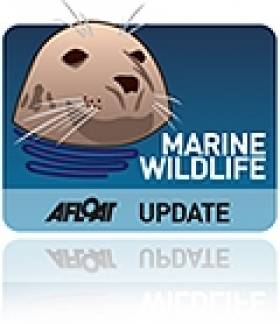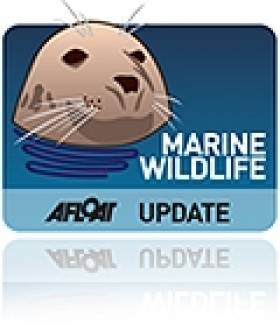Displaying items by tag: MCZs
England Gains 23 New Marine Conservation Zones
#MarineWildlife - Twenty per cent of England's waters are now protected by Marine Conservation Zones (MCZs) after 23 new sites were designated by the UK government, as the Guardian reports.
Two sites in the Irish Sea – Allenby Bay on the Solway Firth, and West of Walney off Barrow-in-Furness, both in Cumbria – number among the latest zones announced yesterday (Sunday 17 January).
The news comes a month after Northern Ireland put forward four new proposed sites for consultation, and more than two years after Westminster confirmed the first 27 MCZs around the British coastline, as previously reported on Afloat.ie.
With the latest designations, that now brings the total number of conservation zones in England to 50 – still less than half of the 127 sites originally proposed after the passing of the Marine Act six years ago.
And according to marine conservation experts, even with these designations "the UK’s rich marine life has very little protection'.
Prof Callum Roberts of the University of York added that the MCZs are no more than "paper parks".
"They have no management at all, so life within them remains unprotected," he said. "They will be worse than useless, giving the illusion of protection where none is present."
The Guardian has much more on the story HERE.
#MarineWildlife - Four new Marine Conservation Zones (MCZs) for Northern Ireland have been put forward for consultation, as the Coleraine Times reports.
Rathlin, Waterfoot, Outer Belfast Lough and Carlingford Lough are the proposed locations, variously home to marine species from the black guillemot to the white sea slug, as well as vulnerable geomorphological features like sea arches.
"We all have a stake in preserving and protecting our marine environment for future generations so I urge people to let us know their views on these proposed sites and species," said NI Environment Minister Mark Durkan, who launched the consultation today (Monday 14 December).
Members of the public in Northern Ireland have until 11 March 2016 to express their views, with full details on the consultation available online.
The Coleraine Times has much more on the story HERE.
NI Marine Bill Progress Marks 'Turning Point'
#MarineWildlife - The Northern Ireland Environment Minister says the new Marine Bill put before Stormont marks a "turning point" for the North.
As 4NI reports, this week saw the fourth stage of the Marine Bill in the NI Assembly as well as the launch of a consultation strategy for Marine Protection Areas (MPAs).
Should it be enacted in legislation, the Marine Bill - strongly supported by the RSPB among others - would give the Assembly powers to select and manage Marine Conservation Zones (MCZs) to safeguard the North's marine biodiversity.
Minister Alex Attwood commented: "Northern Ireland’s seas are home to some of the world's most spectacular wildlife and habitats, and have the potential to power our nation through wind and wave and create thousands of new jobs.
"We have reached a turning point and must modernise in order to meet increasing and competing demands on our seas."
The Marine Bill also provides for the creation of a National Maritime Plan which covers all aspects of the marine environment from wildlife to investment in tidal and offshore wind power.
4NI has much more on the story HERE.
Dismay Over Britain's 'Lack of Ambition' Over Marine Conservation Zones
#MarineWildlife - Fears among conservation groups that the UK would enact just a quarter of the proposed Marine Conservation Zones (MCZs) in British waters have been realised with the news that just 31 out of a potential 127 sites will be designated as protected by the end of 2013.
The original proposals, as reported last year on Afloat.ie, cover the waters around the English and Welsh coastlines - of which only 1% is currently protected - recommending a variety of zones that offer different levels of protection for marine wildlife and plantlife, allowing flexibility for fishing and other activities.
A government decision on the conservation areas was already postponed in November last year after pressure from coastlines users.
But as the Guardian reports, Westminster has now been accused of a "lack of ambition" by the Marine Conservation Society (MCS) over the announcement on Thursday 13 December, which the charity says flies in the face of the government's own advisers who have recommended a 'coherent network' of sites around Britain, including the immediate designation for 59 sites regarded as 'highly threatened'.
"We cannot delay protection," said Jean-Luc Solandt of MCS. "We wouldn't stand by and let wildflower meadows and ancient forests be dug up and cleared, and yet heavy fishing gear is dragged across all kinds of habitats, destroying large swaths of the seabed with very little control."
The World Wide Find for Nature (WWF) added to the chorus of disapproval, saying the decision by the Department of Environment, Food and Rural Affairs (Defra) "falls woefully short of what is needed to protect the marine environment".
Ali Champion of WWF UK said: “It’s disappointing and shows a complete lack of commitment to the protection of our seas in a coherent way."
Of the four zones recommended for the Irish Sea area, only one - at Fylde Offshore, off Lancashire - has been chosen by Defra for protection. But as the Blackpool Gazette reports, local campaigners say they will vow to continue the fight to 'save our seas'.
































































